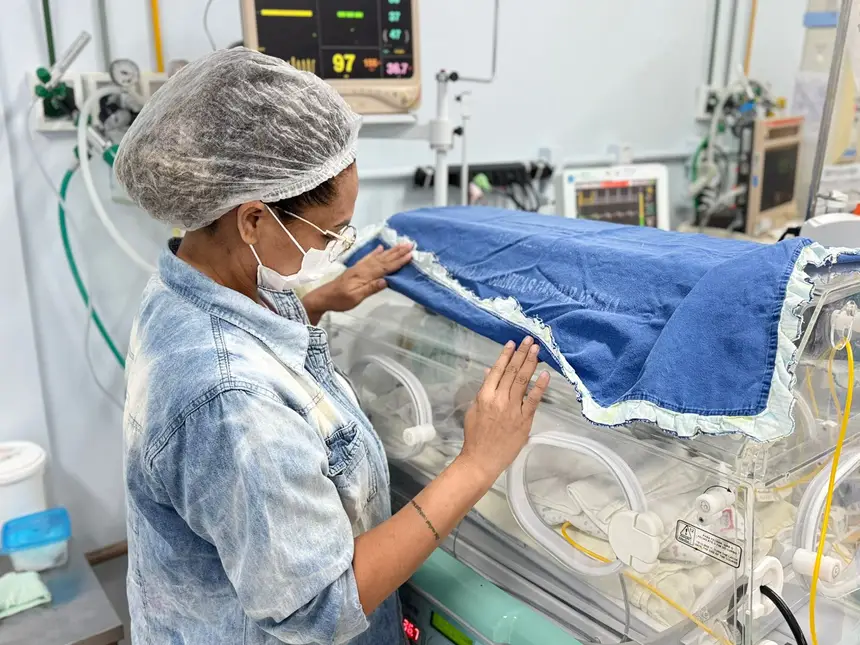Gaspar Vianna Clinical Hospital warns about prematurity and the importance of cardiological prenatal care
On World Prematurity Day, HC reminds that early diagnosis of maternal and fetal heart diseases is essential to ensure the safety of the pregnant woman and the premature baby

This Monday (17), it is World Prematurity Day, and the Gaspar Vianna Clinical Hospital – a reference for cardiology - issues a warning about maternal and fetal heart diseases, which significantly increase the risk of the baby being born prematurely, that is, before 37 weeks. In 2025, the State of Pará recorded the birth of more than 12,000 premature babies, according to data from the State Department of Public Health (Sespa). At HC, between January and October of this year, a quarter of the births of the 23 pregnant women with heart diseases monitored at the unit occurred prematurely.
Pediatric cardiologist Carmosina Lobato, head of the Pediatric Cardiology Clinic at HC, explains that pregnancy imposes a natural overload on the heart, which can worsen pre-existing heart conditions. “During pregnancy, the heart works much harder. In women with heart diseases, especially those with complex malformations, this adaptation does not always occur well. Therefore, the monitoring needs to be multidisciplinary: specialized obstetrician, pediatric cardiologist, and other professionals. The more severe the heart disease, the greater the risk of prematurity, and therefore the delivery should be planned in a tertiary center like HC, which has a Neonatal ICU and a team prepared for these babies, who often are born before 35 weeks,” she states.
According to her, this care should be completely personalized. “Each mother should undergo an individualized assessment to define her monitoring plan - including prenatal care, necessary exams, type of delivery, whether there will be an indication for cesarean section, whether the baby will need Neonatal ICU after birth, and how the entire joint care between mother and fetus will be,” details the specialist.

In addition to maternal heart diseases, structural anomalies of the heart detected still in the womb - fetal heart diseases - also increase the risk of prematurity. The diagnosis can be made through fetal echocardiography, an imaging exam that allows for evaluating the condition, guiding the family, and planning the birth in a unit capable of receiving the high-risk newborn.
This is the case of little Antonella, born at 34 weeks in Itaituba and hospitalized for two weeks at HC. The mother, Fernanda Carvalho, 39 years old, discovered the heart disease shortly before delivery. “I had the morphological ultrasound at 23 weeks, but nothing was noted, only that there was a little problem with the kidney. From then on, other things started to appear, but nothing was noted in the morphological ultrasound, and only later did the changes begin to emerge. I arrived here desperate, alone, not knowing anyone. But I was very welcomed. The team explains everything, answers all questions, and makes us feel secure. I have three boys and have never gone through this. Antonella is the only girl and has been very strong,” she reports.

Service
Gaspar Vianna Clinical Hospital emphasizes that cardiological prenatal care should begin as soon as the pregnant woman is diagnosed with any heart disease or when there is suspicion of fetal alteration Access to the service
As a public hospital of state reference, Gaspar Vianna Clinical Hospital serves pregnant women with heart diseases in two ways: through cardiological emergency and urgency, in cases where the patient presents acute symptoms and seeks immediate care; and through the Regulation System (Sisreg), when the pregnant woman is referred by another health unit for specialized evaluation and monitoring at the hospital.










